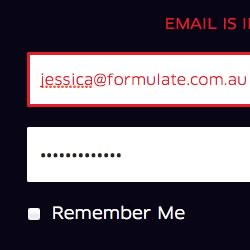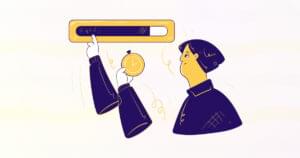Does Bad Grammar Make Bad UX?
Key Takeaways
- Good grammar in user interfaces (UI) can make the text shorter, clearer, and easier to comprehend, leading to a more user-friendly experience. For instance, using an article before a singular noun like “file” in an instruction can make it sound more natural and less robotic to users.
- Striking a balance in UI design is crucial. While accessibility might necessitate more descriptive labels for some options, it’s important to avoid adding unnecessary bloat to interface text. Using grammatically correct constructions can help maintain simplicity and clarity.
- Poor grammar can negatively impact user engagement and your website’s SEO. To avoid grammar mistakes in UX design, proofread content carefully before publishing, use grammar checking tools, and consider having someone else review your content.
Ever since we started creating graphical user interfaces, we’ve been trying to make them friendlier and more usable. Sometimes those two goals coincide; sometimes they don’t.

When space is at a premium, and you need to minimise ambiguity, the most direct approach is often best — which is why the button in this interface says simply “Upload” and not something fluffier like “Upload this file.”
![]()
But to me, “Choose file” sounds unnatural. Why? Probably because it’s ungrammatical.
Before you roll your eyes, know that grammar can make your interface text shorter, clearer, and easier to comprehend. We rely on grammar for communication every day: in written and spoken texts.
So why not in your beautifully crafted interfaces?
Let’s go back to the example above. Be warned: I’m going to explain an aspect of grammar in the next paragraph. Remain calm.
As I said, “Choose file” is ungrammatical. We can command someone to “Play ball” or “Eat Spam” because in those contexts, ball and Spam are what we call collective nouns — they’re not referring to a specific ball or a particular tin of Spam. But the noun “file” can’t be collective: it’s either singular or plural.

So grammar dictates that the singular form must have an article — like “a” or “the” — before it.
The bottom line? For the sake of two more spaces, we could make the instruction say, “Choose a file”, which to the average user sounds much less like a robot and much more human.
Add small changes like this up over thousands of interfaces, and you can start to see how it could make a difference to the way your users feel about your service.
Great! Easy! Well, not always…
Striking a balance
Designers know that using one font for all H3 headings, for example, indicates to users that the information under each heading sits at the same level of “depth”, or has equal “weight” to the others in the overall scheme of a piece of content.
So the interface designer has given equal weight to the two user options shown below: they take the same font, and each has an image.
![]()
But the text gives more weight to the “save as pdf” option — why isn’t it just “save”, to match the other choice’s single-word label?
I’m guessing accessibility would have been the motivator. Print means print, but the word “save” doesn’t indicate the format on its own, and since low-vision users might not see the PDF icon, the text needed to repeat that information. So maybe this isn’t a case where parallel construction is possible. There’s no point expanding the “print” label for the sake of adding words.
What about good old grammar? Constructions like “save as pdf” and “save to pdf” are both ungrammatical — we’d never write them in prose. We might say “Save this as a pdf” or “Save it in pdf format”. But you can see how once you start down this road, you can quickly find yourself adding needless bloat to interface text.
Instead, I’d go to the other end of the spectrum, and make the label: save (pdf).
It’s simple, it’s shorter, it expects the same level of understanding of the user, and — yes — it is grammatical.
Look who’s talking
So far we’ve looked at small, straightforward interface examples. If you’re the kind of designer who thinks your CMS interface, for example, doesn’t need to talk to users in their own language, you might be thinking none of this applies to you.
So let’s look at a retail example: the Book Depository.

Remember how I said a lack of application of grammatical techniques like articles can add up? Here’s a great case in point. Applying the couple of principles we’ve already discussed, let’s see how we can make these labels less like something a robot would say, and more like something an approachable brand would say:
-
Login/register
Login or register OR Login | Register
-
Search for books by keyword/book title/author/ISBN
Search on a book title, keyword, author or ISBN
-
Find book
Find books OR Search for books
-
Currency selection
Choose a currency
-
Go to basket/checkout
View your basket OR Checkout
If you were really going the whole hog, you might also consider making “Track order” “Track an order” or “Track your order”.
One of the main issues with the labels in this header is the use of slashes. A label that says “Login/register” isn’t going to jump out at a scanning first-time user who’s looking for a typical Register call to action. Similarly, “Go to basket/checkout” is just plain confusing. Which is it: the basket or the checkout? Why not just call it that?
And that Search instruction is truly mind-boggling. First, the text is small. Using slashes instead of commas and spaces makes the whole thing run together, making it even more difficult to read. And in the context of this being the Book Depository, and that big fat “Find book” button, we can probably dispense with the first instance of the word “book” in the instruction.
The alternative text I suggested above is shorter than that on the published page, as well as being easier to comprehend. Win:win.
Clearer interfaces, clearer communication
It’s true: sometimes grammar is the interface designer’s nerdy but smart friend!
Don’t waste time and energy creating a gorgeous, friendly brand, but let computer-speak creep into your interfaces. With the kind of grammar we already know, we can carry those brand values through to the smallest snippets of interface text — sometimes making them more compact, but in every case making them more communicative.
Frequently Asked Questions (FAQs) about Bad Web Grammar and User Experience (UX)
Why is good grammar important in UX design?
Good grammar is crucial in UX design because it ensures clear communication. Poor grammar can lead to misunderstandings, confusion, and frustration for the user, which can negatively impact their experience on your website. It can also make your site appear unprofessional, which can harm your credibility and trustworthiness. Therefore, it’s essential to ensure that your website’s content is grammatically correct and easy to understand.
What are some common grammar mistakes in UX design?
Some common grammar mistakes in UX design include incorrect use of punctuation, misspelled words, incorrect verb tenses, and misuse of homophones (words that sound the same but have different meanings). These mistakes can make your content difficult to understand and can negatively impact the user’s experience.
How can I avoid grammar mistakes in UX design?
To avoid grammar mistakes in UX design, it’s important to proofread your content carefully before publishing it. You can also use grammar checking tools, such as Grammarly, to help identify and correct any errors. Additionally, it can be helpful to have someone else review your content, as they may spot mistakes that you’ve overlooked.
Can bad grammar affect my website’s SEO?
Yes, bad grammar can negatively impact your website’s SEO. Search engines like Google prioritize high-quality content, and grammar mistakes can make your content appear low-quality. This can result in lower search engine rankings, which can reduce your website’s visibility and traffic.
What is the impact of bad grammar on user engagement?
Bad grammar can significantly impact user engagement. If users struggle to understand your content due to grammar mistakes, they’re likely to leave your site and not return. This can result in lower engagement rates, which can negatively impact your website’s performance.
How can I improve the grammar on my website?
To improve the grammar on your website, consider hiring a professional editor or proofreader. They can review your content and correct any grammar mistakes, ensuring that your content is clear and easy to understand. You can also use online grammar checking tools to help identify and correct errors.
What are some examples of bad UX due to poor grammar?
Examples of bad UX due to poor grammar can include confusing navigation menus, unclear instructions, and misleading information. These issues can make it difficult for users to use your website effectively, leading to frustration and a poor user experience.
How does good grammar contribute to good UX?
Good grammar contributes to good UX by ensuring clear and effective communication. It helps users understand your content, navigate your site, and complete desired actions. This can lead to higher user satisfaction, engagement, and conversion rates.
Can good grammar improve my website’s conversion rates?
Yes, good grammar can improve your website’s conversion rates. Clear and error-free content can enhance your site’s credibility and trustworthiness, which can encourage users to take desired actions, such as making a purchase or signing up for a newsletter.
What resources can I use to improve my grammar skills?
There are many resources available to help improve your grammar skills. Online courses, grammar books, and grammar checking tools can all be useful. Additionally, practicing writing regularly and getting feedback from others can also help improve your grammar skills.
Georgina has more than fifteen years' experience writing and editing for web, print and voice. With a background in marketing and a passion for words, the time Georgina spent with companies like Sausage Software and sitepoint.com cemented her lasting interest in the media, persuasion, and communications culture.

